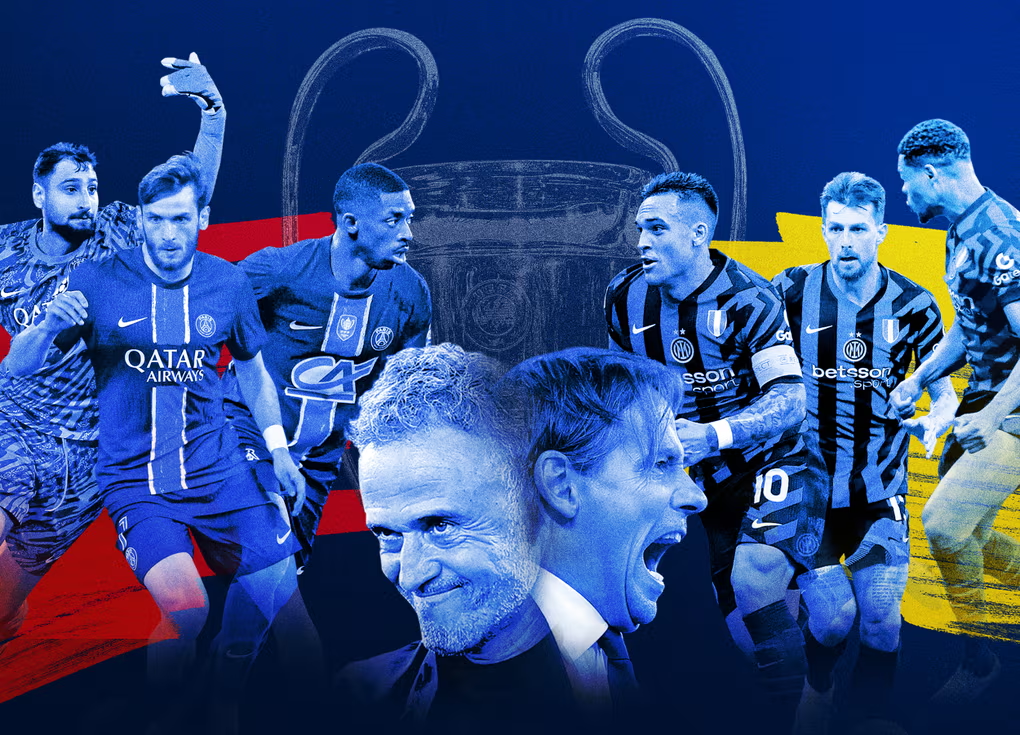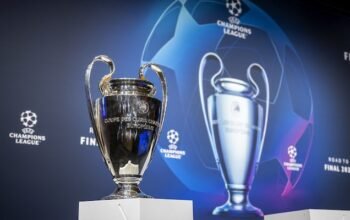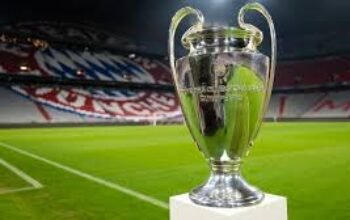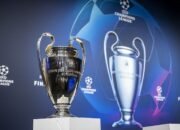In one of the most memorable UEFA Champions League finals in recent history, Paris Saint-Germain (PSG) delivered a performance for the ages, dismantling Inter Milan 5–0 in a result that not only sealed their first European title but also revealed the deep contrasts between two footballing philosophies. This clash wasn’t just about goals, tactics, or even glory—it was a reflection of how the modern game is shaped by economics, identity, and long-term vision.
A Statement Victory
The final, held in Berlin, was expected to be a tight contest between two resilient sides. Inter Milan came in boasting a solid defense and experience in European competition, while PSG brought youthful exuberance and tactical sharpness under manager Luis Enrique. Yet what unfolded was a masterclass by the French champions.
From the opening whistle, PSG set the tempo. Their pressing was relentless, their passing slick and purposeful, and their movement without the ball left Inter chasing shadows. Within the first half-hour, they were already two goals up thanks to dynamic performances from young winger Désiré Doué and attacking fullback Achraf Hakimi.
Doué, in particular, stood out as the brightest star on the night. The 19-year-old scored twice and assisted another, showing composure and creativity that belied his age. His link-up play with Khvicha Kvaratskhelia and Vitinha in midfield was seamless. PSG’s dominance continued after the break, with substitute Senny Mayulu adding to the tally late in the game. By the final whistle, the 5-0 scoreline not only stunned fans but set a new record for the biggest win in a Champions League final.
Luis Enrique’s Tactical Brilliance
Luis Enrique deserves immense credit for the way he has reshaped PSG’s identity. Known for his work at Barcelona and the Spanish national team, he brought a new philosophy to Paris: a balance of tactical discipline, positional fluidity, and youth development. Rather than depending on high-profile stars as previous PSG teams had done, Enrique focused on creating a system that elevated the collective over the individual.
The midfield trio—Vitinha, Fabián Ruiz, and Warren Zaïre-Emery—controlled the tempo throughout. Vitinha, in particular, was a maestro in the middle of the park, dictating play with elegance and precision. His ability to transition from defense to attack ensured Inter never found their rhythm.
This wasn’t the PSG of old. It wasn’t about showboating or star power. It was about purpose and unity.
Inter Milan: Outclassed but Not Broken
On the opposite side, Inter Milan struggled from the outset. Simone Inzaghi’s side had earned their place in the final through disciplined defending and intelligent counter-attacking. But against PSG’s relentless pressure and pace, their usual tactics fell apart. Inter looked out of ideas, and their defensive line—usually so solid—was overrun by wave after wave of PSG attacks.
Despite the loss, Inter’s journey to the final was remarkable. Having come through financial uncertainty and squad changes, they reached the final with a squad that played beyond its means. While the 5–0 defeat was a bitter pill, it didn’t erase the strides the club has made in recent years. Inzaghi will need to regroup, but the foundation is there.
Two Ownership Models, Two Visions
Beyond the footballing spectacle, the final also underscored two very different approaches to modern club ownership and management.
PSG is owned by Qatar Sports Investments (QSI), a state-backed entity with deep pockets and a long-term vision. Since their acquisition of the club in 2011, QSI has poured significant resources into infrastructure, player development, and branding. While critics have often accused PSG of trying to “buy” success, this title was different. It was a product of long-term planning, smart recruitment, and investment in youth. Players like Doué, Zaïre-Emery, and Mayulu are not just symbols of PSG’s future—they’re proof that state-backed clubs can build sustainably if they choose to.
Inter Milan, on the other hand, are now controlled by American investment firm Oaktree Capital. After taking over from the Suning Group due to financial issues, Oaktree brought a more fiscally cautious and asset-focused model. Their aim was clear: stabilize the club, manage costs, and increase its valuation. Inter’s deep run in the Champions League—despite budget constraints—will likely boost its profile and financial value. However, the final showed the limits of a pragmatic approach when pitted against a project built on long-term vision and unmatched resources.
The Bigger Picture: What This Final Tells Us About Football
The result of this match, while historic, opens a broader conversation about the future of European football. Should the game be dominated by state-backed entities with access to immense capital? Can traditional or investment-led clubs like Inter compete sustainably without compromising competitiveness?
There are no easy answers. PSG’s win will be celebrated, especially by fans who have waited decades for European success. But the disparity in resources between the two clubs can’t be ignored. If the trend continues, we may see fewer competitive finals and more one-sided affairs. UEFA’s Financial Fair Play regulations, already under scrutiny, may need a rethink if balance and fairness are to be preserved.
At the same time, Inter’s journey proves that smart management, identity, and resilience still count for something. Even if they didn’t lift the trophy, their progress is a blueprint for clubs working under financial limitations.
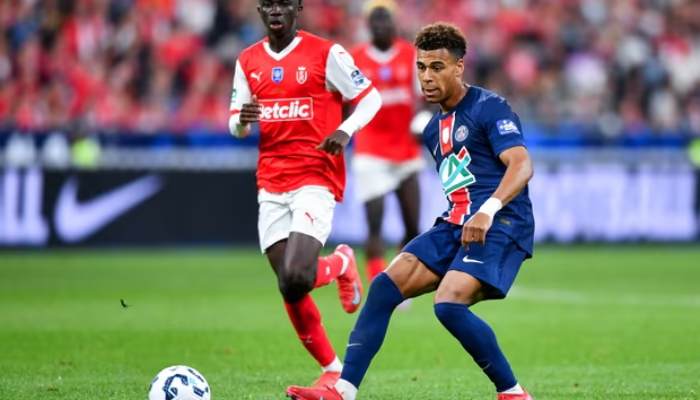
A New Era for PSG
For PSG, this final could mark the beginning of a new era. Gone are the days of being labeled “chokers” on the European stage. With a young and hungry squad, a world-class manager, and a united footballing philosophy, they have the foundation to build a dynasty. However, success breeds attention—and that brings new challenges. Europe’s biggest clubs will undoubtedly circle around PSG’s brightest talents, and the pressure to repeat this achievement will only grow.
Yet for one night in Berlin, all of that faded into the background. PSG were the best team in Europe—by far. And they didn’t win because of money alone. They won because they played the best football, told the clearest story, and executed a near-perfect plan.
